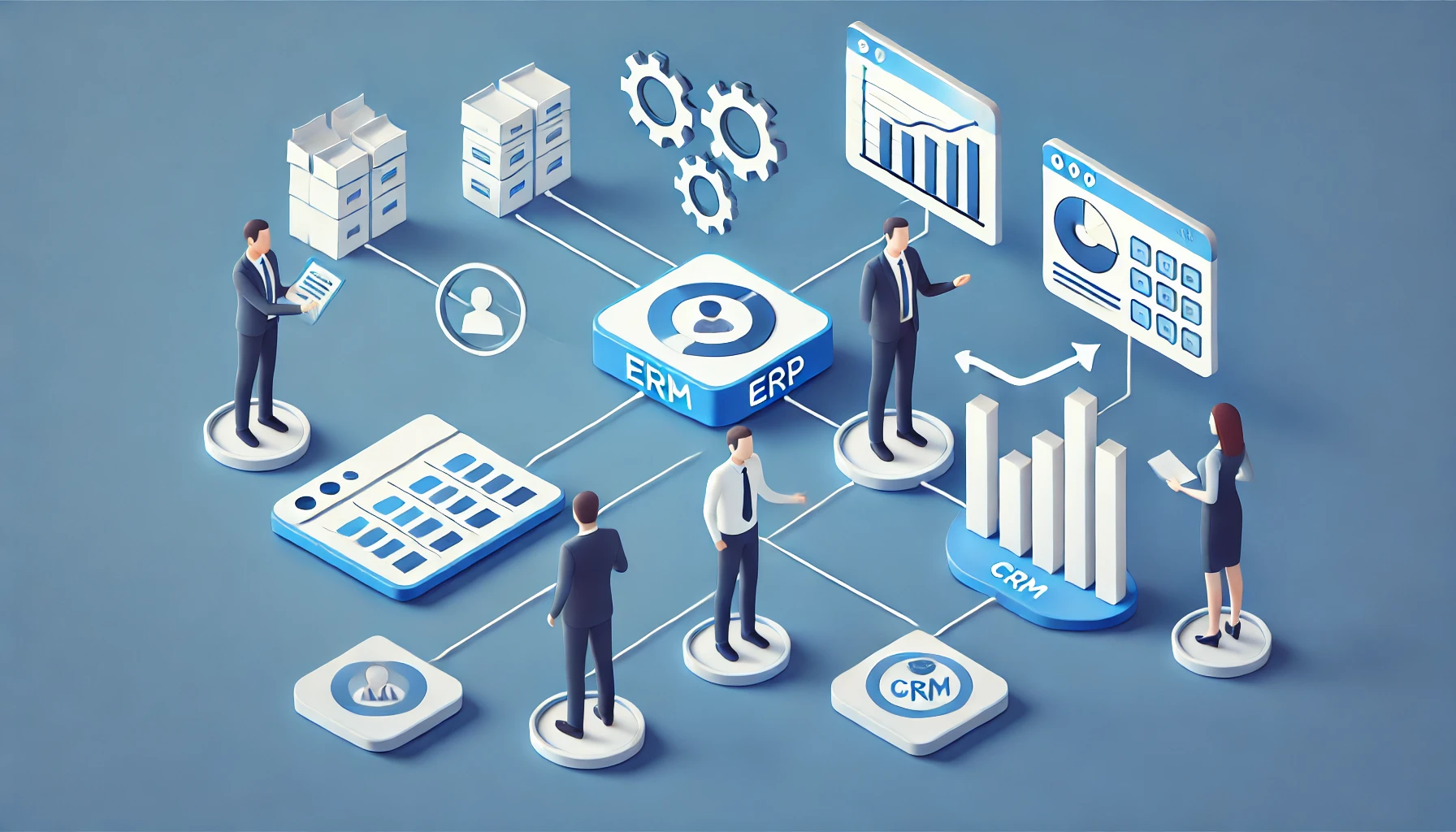Enterprise Resource Planning (ERP) systems have become the backbone of modern business operations. Among these, NetSuite ERP has consistently stood out for its robust capabilities, cloud-native infrastructure, and scalability.
As technology continues to evolve, so does NetSuite, setting benchmarks in innovation and redefining how businesses manage operations. In this blog, we delve into the future of NetSuite ERP systems, exploring its transformative potential, upcoming trends, and features that make it indispensable for businesses worldwide.

Table of Contents
ToggleThe Evolution of NetSuite ERP: Setting the Stage for the Future
NetSuite has come a long way since its inception as one of the first cloud-based ERP systems. Its journey reflects a commitment to innovation and adaptability.
- Cloud-Native Pioneering: NetSuite was a trailblazer in cloud ERP systems, offering businesses unmatched flexibility and accessibility.
- Integrated Ecosystem: Over the years, it has expanded to integrate financials, CRM, HR, and e-commerce seamlessly.
- Global Reach: Supporting multiple currencies, languages, and compliance regulations, NetSuite is a preferred choice for global businesses.
The foundation laid by these features positions NetSuite to lead the way into the future, addressing the needs of dynamic, tech-savvy enterprises.
Key Trends Shaping the Future of NetSuite ERP Systems
- Artificial Intelligence and Machine Learning Integration
The integration of AI and ML is set to redefine how businesses interact with ERP systems.
- Predictive Analytics: NetSuite is expected to offer advanced forecasting tools powered by AI, helping businesses anticipate market trends and optimize operations.
- Process Automation: Machine learning algorithms will automate repetitive tasks, from invoice processing to inventory management, saving time and reducing errors.
- Smart Recommendations: AI-driven insights will guide decision-making, offering tailored recommendations for resource allocation, marketing strategies, and more.
This shift towards intelligent automation will enable businesses to focus on strategic growth while NetSuite handles routine operations.
- Enhanced User Experience with Personalization
Future NetSuite updates are likely to focus heavily on improving user experience.
- Custom Dashboards: Enhanced personalization options will allow users to create dashboards tailored to their roles and preferences.
- Intuitive Interfaces: A more user-friendly design will simplify navigation, making the system accessible even for non-technical users.
- Voice and Chat Integration: Voice commands and chatbots powered by natural language processing (NLP) will make interacting with NetSuite faster and more convenient.
These advancements will ensure that NetSuite remains user-centric, catering to the evolving expectations of modern workforces.
- Advanced Supply Chain and Logistics Features
As supply chains become increasingly complex, NetSuite will likely expand its capabilities in this area.
- IoT Integration: NetSuite will leverage the Internet of Things (IoT) to offer real-time tracking of goods and assets.
- Blockchain for Transparency: The inclusion of blockchain technology will enhance supply chain transparency, ensuring authenticity and reducing fraud.
- Dynamic Inventory Management: AI-driven demand planning and inventory optimization will become core features, helping businesses maintain balance and minimize costs.
These developments will strengthen NetSuite’s position as a go-to solution for supply chain excellence.
- Scalability for Growing Businesses
NetSuite’s scalable architecture already caters to businesses of all sizes. Future enhancements will further this capability.
- Modular Expansions: Businesses can expect more industry-specific modules, tailored to unique needs such as healthcare, manufacturing, or non-profits.
- Multi-Entity Support: Enhanced features for managing subsidiaries, mergers, and acquisitions will make NetSuite indispensable for complex corporate structures.
- Global Compliance Updates: As regulations evolve, NetSuite will provide updated compliance tools to ensure businesses operate legally worldwide.
Scalability will remain a cornerstone of NetSuite’s value proposition, empowering businesses to adapt and grow seamlessly.
The Role of Data Security in NetSuite’s Future
With increasing reliance on cloud platforms, data security has become paramount. NetSuite is committed to staying ahead of the curve in protecting sensitive information.
- Advanced Encryption: Future iterations will include stronger encryption protocols to safeguard data.
- AI-Powered Threat Detection: Automated systems will detect and mitigate potential security breaches in real time.
- Compliance Certifications: NetSuite will continue to update its compliance with global security standards like GDPR and CCPA, ensuring peace of mind for businesses.
By prioritizing data security, NetSuite builds trust with its users, a critical factor for any ERP system’s success.
NetSuite’s Role in Driving Digital Transformation
As digital transformation becomes a strategic imperative, NetSuite will play a pivotal role in helping businesses transition to a fully digital ecosystem.
- Cloud-First Strategy: With its robust cloud infrastructure, NetSuite provides the flexibility and scalability businesses need to innovate.
- Data-Driven Decision Making: Real-time analytics and reporting tools will empower organizations to make informed decisions quickly.
- Integration Capabilities: NetSuite’s ability to integrate with third-party tools will enhance collaboration and streamline operations.
This focus on digital transformation ensures that NetSuite remains at the forefront of ERP innovation.
Real-Life Success Stories: Businesses Thriving with NetSuite
NetSuite’s continuous evolution has already delivered tangible benefits to numerous businesses:
- Retail Giants: Improved demand planning has helped retailers reduce overstocking and optimize shelf space.
- Manufacturers: Automation features have streamlined production schedules, reducing downtime and costs.
- E-Commerce Leaders: Seamless integration with online platforms has enabled faster order fulfillment and improved customer satisfaction.
These examples demonstrate how NetSuite is poised to address future challenges while delivering exceptional value today.
Why Businesses Should Embrace NetSuite’s Future
Investing in NetSuite is not just about meeting current needs but also about preparing for the future. Its commitment to innovation ensures that businesses remain competitive in a rapidly changing landscape.
By adopting NetSuite, companies can:
- Enhance efficiency with automation and AI tools.
- Gain actionable insights through advanced analytics.
- Scale operations seamlessly as they grow.
- Strengthen customer relationships with personalized experiences.
As technology evolves, NetSuite will continue to provide businesses with the tools they need to thrive.
Conclusion : Suitepedia’s Insights on NetSuite’s Future
At Suitepedia, we are dedicated to exploring and sharing insights about the best ERP solutions available. The future of NetSuite ERP systems promises unparalleled innovation, making it a vital tool for businesses aiming to succeed in the digital age.
From AI-driven features to enhanced security and scalability, NetSuite is redefining ERP systems for modern enterprises. Embrace the possibilities and let Suitepedia guide you on your journey to harnessing the full potential of NetSuite.



